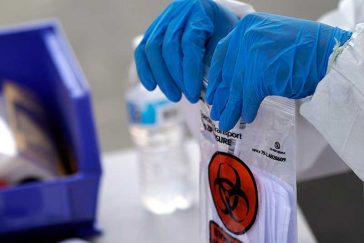
As PFAS contamination continues to gain notoriety throughout the United States, the House of Representatives has passed recent legislation directing billions to upgrade water treatment systems. And the 2021 defense-authorization measure could create funding for PFAS remediation at military sites. Now, public-health experts are calling for funding to study about a more immediate threat of PFAS exposure: do these forever chemicals exacerbate coronavirus symptoms?
“We know that PFAS exposure, which weakens immune systems, causes diseases like cancer, and is reported to reduce antibody responses to vaccines, could create the perfect COVID-19 storm in communities across the United States,” said Harley Rouda, House Oversight and Reform Environment Subcommittee Chairman. Roada is insisting that the next House COVID relief package include funds to study the relationship between COVID-19 and PFAS exposure. Many other lawmakers agree with him, and have sent letters to the House and the Centers for Disease Control (CDC) to request funding and immediate research to analyze the link. The Agency for Toxic Substances and Disease Registry and the CDC have both stated that the link between PFAS and coronavirus is an important question and are beginning studies, but are unsure of the time frame.
A recent Harvard University study found that respiratory conditions linked to air pollution can increase the severity of coronavirus infections, and experts say a PFAS study may reveal similar findings. STEEP co-lead and Harvard Professor Philippe Grandjean, is currently studying the effects of PFAS exposure on coronavirus patients. He is analyzing PFAS levels in blood samples collected from COVID-19-positive patients to evaluate potential connections. He pointed to some linkages between the two health crises, like higher prevalence of PFAS and severe coronavirus infection among both older people and men.
“It looks to me like PFAS would be a main culprit that we should look at because they are everywhere,” Grandjean said. “I would certainly think that either [National Institutes of Health] or CDC should fund studies where they look at these affected communities that have been drinking PFAS-contaminated drinking water for some time, probably decades.”

